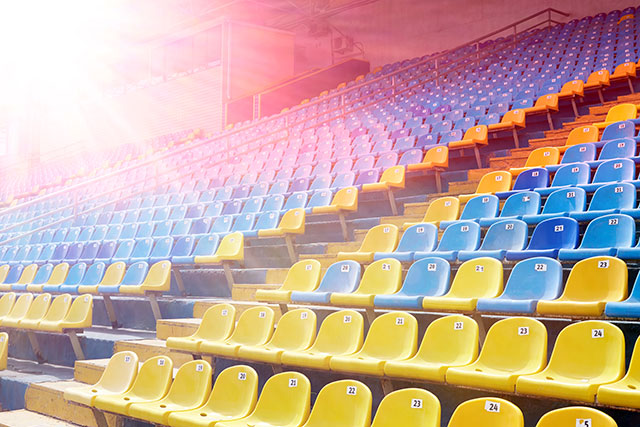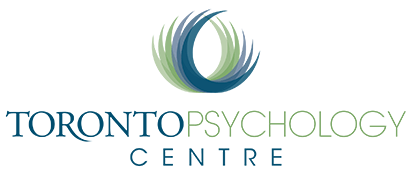
Sport-Related Concussion
Welcome to our sport-related concussion assessment and consultation services. Neuropsychological assessment is a valuable tool in the evaluation and management of a concussed athlete. We provide an in-depth review of your brain health to assist with questions about how you may have been affected by a sport-related concussion or persistent post-concussive symptoms. Our neuropsychological services are tailored to each individual, whether they want to understand how a past injury may have affected them, need treatment recommendations to address a sport-related brain injury, or assistance with accommodations for school or work.
Injury sustained in sports can be a significant setback for athletes who derive self-esteem, mastery, belonging or a sense of identity from sports. Our aim is to help non-professional and professional athletes return to sports in a safe way and provide specific information about what areas of brain functioning have been affected by their injury.
Neuropsychological assessment provides an objective, scientific method for evaluation of a sport-related concussion. Neuropsychological findings can identify difficulties in attention and concentration, speed of information processing, and impaired memory. Neuropsychologists can provide early intervention in the form of education, monitoring an athlete’s return to school/work, and treating emotional changes that may arise during the recovery period.
In addition to helping athletes, our neuropsychologists provide consultation to allied health professionals (e.g., physiotherapists, occupational therapists, social workers), rehabilitation centres, surgeons, and physicians.
Concussion & Sports
A concussion can result in diverse symptoms that are somatic (e.g., headache, nausea, dizziness, sensitivity to light, loss of balance), cognitive (e.g., difficulty with attention and concentration, memory, information processing speed or feeling in a fog), and psychological in nature (e.g., depression, anxiety and emotional lability). The symptoms of concussion usually resolve within seven to 10 days in college-age and professional athletes.
Research findings indicate that certain people are more vulnerable to concussions and have slower or more complicated recoveries, including women, athletes with co-occurring neurologic, psychiatric disorders, or substance abuse issues, as well as individuals with a previous prior history of multiple concussions. Although most athletes recover relatively quickly from a concussion, some experience protracted symptoms and problems that can linger for many weeks to months.
There has been increasing attention to the neurological consequences of sport-related traumatic brain injury, particularly concussion. Concussion is a frequent occurrence in contact sports. Although helmets and other athletic gear may reduce the degree of force to the head, they can never fully prevent a concussion. In particular, rugby, football, soccer, and hockey have high rates of head injuries.
Most sport-related head injuries are minor and although the majority of athletes recover within a few days or weeks, a small number of individuals may experience long-lasting symptoms. Some individuals may also develop cognitive deficits or emotional symptoms later in life and these appear to be associated with a history of repeated head injury. There is a growing body of research investigating a potential association between repetitive concussion or mild traumatic brain injury and the development of a distinct neuropathological condition, chronic traumatic encephalopathy (CTE).
It is critically important to properly evaluate the effects of concussion and ensure that athletes do not return to their sport or other vigorous activity too quickly, as they may be at greater risk of a second concussion. This may place athletes at risk for worsening symptoms or prolonged recovery.
How Can A Neuropsychological Assessment Help?
Baseline or Pre-Season Testing
A comprehensive baseline neuropsychological assessment can provide useful information about the many factors present before an injury that can influence test performance of an injured athlete. A thorough understanding of an athlete’s baseline cognitive, behavioural, and emotional functioning allows more accurate interpretation of the results from a post-injury assessment. Although baseline or pre-season testing is not considered to be a mandatory aspect of sport-related concussion management, it is recognized to be useful for interpretation and for educating a concussed athlete regarding the significance of an injury (Consensus Statement on Concussion in Sport, 2017, British Medical Journal).
Return-To-Play Decisions
Returning to play is typically a medical decision that incorporates a multidisciplinary approach, including the results of a neuropsychological assessment. People who experience a concussion need to take the appropriate action to prevent further damage and potentially detrimental consequences. Post-injury neuropsychological testing is not required for all athletes; however, when symptoms persist, a neuropsychological assessment can be helpful in explaining what cognitive processes may be compromising your day-to-day functioning.
Our neuropsychologists can provide a comprehensive neuropsychological assessment to examine memory, attention, processing speed, reasoning and other cognitive skills. Importantly, the assessment will also involve an evaluation of psychological factors that may be relevant and help explain some of your current symptoms. Results of neuropsychological testing identify both cognitive impairments and strengths, which can help with decision making as well as identify targeted treatment options.
In more serious cases, neuropsychologists may suggest a rehabilitation program. In this kind of treatment, individuals practice memory, reasoning and other cognitive skills to retrain the brain, just like they might undergo rehabilitation for a physical injury. The most common treatment for concussion, however, is rest. The more you overexert yourself physically or mentally after a concussion, the more likely you are to worsen your symptoms and delay your recovery. You should also avoid situations that could lead to a new concussion before the old one heals.
Ideally, management and treatment of sport-related concussions should include opportunities to address the psychological impact and emotional responses that can be activated in athletes in varying degrees. When athletes are unable to practice or train, or when they feel significant physical, cognitive or emotional vulnerability, they often perceive challenges to their identity, self-esteem, and in some cases, their future plans or goals.
Please contact us to book a neuropsychoogical assessment with one of our expert neuropsychologists.
